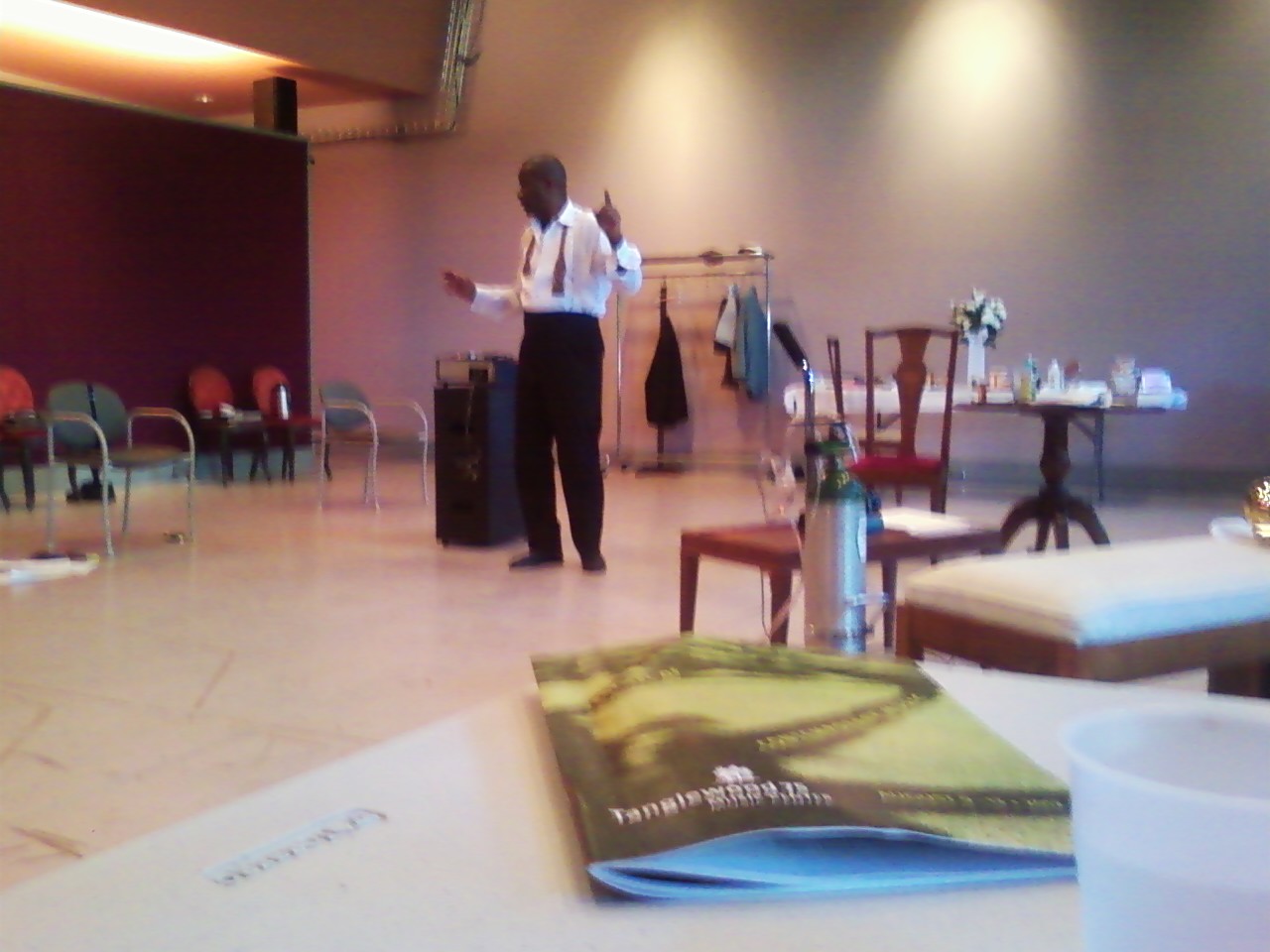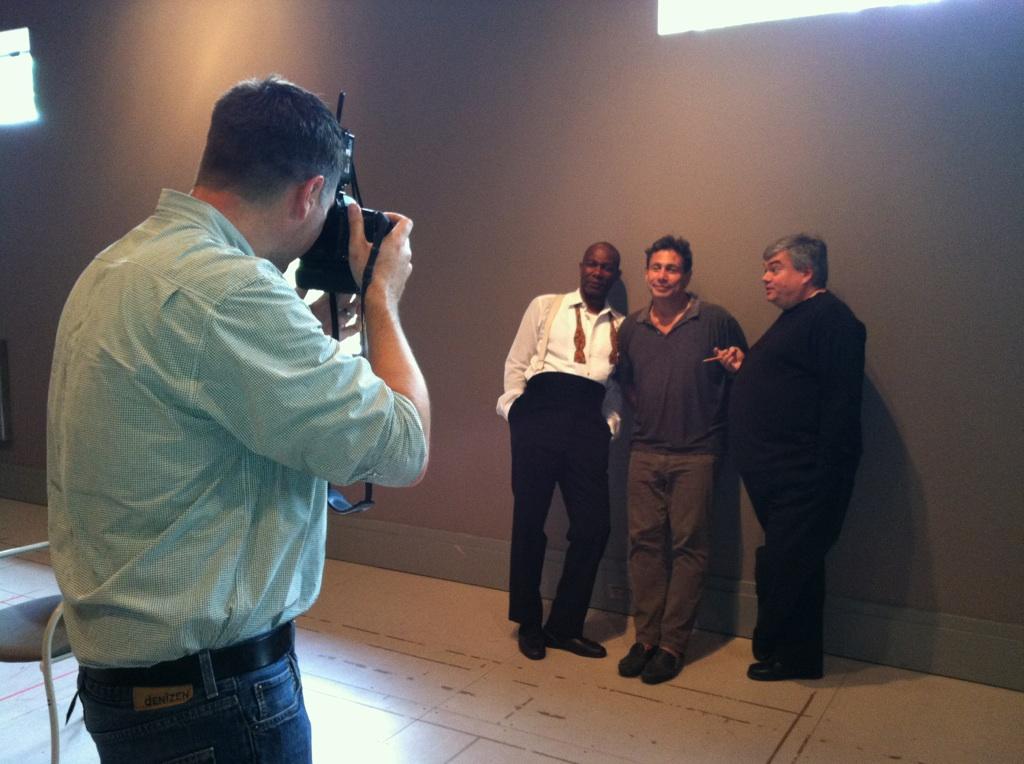“Trapped dreams must die.”
James Branch Cabell, The Certain Hour
Archives for 2012
TT: So you want to see a show?
Here’s my list of recommended Broadway, off-Broadway, and out-of-town shows, updated weekly. In all cases, I gave these shows favorable reviews (if sometimes qualifiedly so) in The Wall Street Journal when they opened. For more information, click on the title.
BROADWAY:
• Bring It On (musical, G, closes Jan. 20, reviewed here)
• Evita (musical, PG-13, reviewed here)
• Once (musical, G/PG-13, all performances sold out last week, reviewed here)
OFF BROADWAY:
• Avenue Q (musical, R, adult subject matter and one show-stopping scene of puppet-on-puppet sex, reviewed here)
• The Fantasticks (musical, G, suitable for children capable of enjoying a love story, reviewed here)
• Tribes (drama, PG-13, closes Jan. 6, reviewed here)
CLOSING SOON IN CHICAGO:
• Freud’s Last Session (drama, PG-13, restaging of off-Broadway production, closes Sept. 2, reviewed here)
CLOSING SOON IN MINNEAPOLIS:
• The Sunshine Boys (comedy, G, closes Sept. 2, reviewed here)
CLOSING SOON ON BROADWAY:
• The Best Man (drama, PG-13, closes Sept. 9, reviewed here)
TT: Almanac
“The reward of a thing well done, is to have done it.”
Ralph Waldo Emerson, “Nominalist and Realist”
TT: Snapshot
The Four Freshmen perform “Poinciana” in 1952:
(This is the latest in a series of arts-related videos that appear in this space each Monday and Wednesday.)
TT: Almanac
“The mode in which the inevitable comes to pass is through effort.”
Oliver Wendell Holmes, Jr., “Ideals and Doubts”
TT: Lookback
 From 2004:
From 2004:
My friends all take vacations, and swear by them. I don’t, and after due consideration I’ve decided to blame this idiosyncrasy on my late father, who planned the family vacations of my youth on the mistaken assumption that the point of going somewhere is to do something. An anxious, restless man, he was never much good at doing nothing, whereas it seemed self-evident to me from childhood onward that the whole point of taking a vacation was to do whatever you wanted–including nothing–whenever you wanted….
Read the whole thing here.
TT: Almanac
“To fulfill a dream, to be allowed to sweat over lonely labor, to be given a chance to create, is the meat and potatoes of life. The money is the gravy.”
Bette Davis, The Lonely Life: An Autobiography
TT: Getting there
I haven’t had anything to say about Satchmo at the Waldorf in recent days because there hasn’t been much to tell. We’ve been making steady and gratifying progress since I arrived in Lenox two weeks ago. Gordon Edelstein, the director, has finished blocking the show and is now polishing the staging, and John Douglas Thompson, who is playing the double role of Louis Armstrong and Joe Glaser, is systematically bringing both parts to vivid and specific life, in much the same way that a sculptor chips away at a block of stone until the features of a man start to emerge.
 Two days ago John put on the cap and horn-rimmed glasses that Armstrong wore offstage in later life. When he broke out in Satchmo’s familiar grin, my jaw dropped. “My God, you even look like him now!” I cried involuntarily. We all burst into happy laughter, then went back to work.
Two days ago John put on the cap and horn-rimmed glasses that Armstrong wore offstage in later life. When he broke out in Satchmo’s familiar grin, my jaw dropped. “My God, you even look like him now!” I cried involuntarily. We all burst into happy laughter, then went back to work.
Rehearsing a play is, needless to say, serious business, but that doesn’t mean the three of us aren’t spending a fair amount of time laughing. Our funniest mishap to date occurred place last week when John took his first shot at delivering Glaser’s last sentence, an eight-word string of Anglo-Saxon monosyllables that The Wall Street Journal would never dream of printing. He couldn’t decide which of them to stress, so he tried emphasizing one word, then another. Gordon and I got giggly on the fourth try. At that point John started to play along by repeating the sentence eight times in a row, exaggerating each word in turn. All three of us broke up, after which the stage manager wisely called for a ten-minute break.
If you saw Satchmo at the Waldorf in Orlando last fall, you know that the script contains a considerable number of four-, seven-, ten-, and twelve-letter words. The last of these words is the one that appears most frequently. I use it that way because Armstrong did–you can hear him do so ad infinitum on his private tapes–and I wanted to be as true as possible to his offstage habits of speech. Perhaps not surprisingly, John, Gordon, and I are all starting to use That Word rather more frequently than we usually do. So far we’ve managed to restrict it to the rehearsal room, but I now live in fear of forgetting myself and inadvertently letting it fly in public, thereby scandalizing the proper patrons of Shakespeare & Company. I hope they’ll be forgiving!
I’m officially present at rehearsals so that I can make such on-the-spot script revisions as may prove necessary, but the real reason why I show up each day is to watch John and Gordon. In Rewrites, the first volume of his memoirs, Neil Simon talks about coming to rehearsals of Sweet Charity just so that he could watch Bob Fosse choreograph the dances:
I did all my rewrites at home at night and early in the morning, because I never wanted to miss a moment of watching Bob and Gwen [Verdon] work. True, much of their work was prepared in advance, but at least half was created on their feet in a rehearsal hall. Cy Coleman often sat at the piano improvising variations on the themes of the score to fit Bob’s need in creating a dance. Gwen’s and Bob’s minds and feet worked as one, and as he was showing her a move or a step, she already knew it before he finished.
That’s what it feels like for me to see these two great artists working on my play.
For me, the rehearsals of Satchmo at the Waldorf have been a kind of theatrical finishing school. I did a lot of theater in high school and college, but the only course I took was a single semester of Acting 101. Until I watched Jonathan Kent staging The Letter in Santa Fe in the summer of 2009, I’d never seen a professional director at work. All I knew about the nuts and bolts of what they do was what I’d read in books, and anybody who knows anything about theater is well aware that there’s a yawning gap between theory and practice.
The most important lesson that I’ve learned in Lenox is that in the rehearsal room, all intellectual concepts must be translated into the language of concrete intention. Otherwise they’re nothing more than clever chit-chat. It does no good to tell an actor that you had Goethe or Proust in mind when you wrote a particular scene, any more than it’s helpful for a conductor to spend ten minutes explaining the underlying philosophy of the slow movement of Beethoven’s Ninth Symphony to a roomful of bored musicians. If you’re a director, you have to tell the actor what to do and explain why his character is doing it–or, better yet, get him to tell you.
Similarly, every movement that an actor makes on stage must be motivated. If you don’t have a reason to sit down in a chair, then the audience won’t get anything out of your having done so. The worst thing you can do on stage, bar none, is to wander aimlessly.
 The second most important lesson that I’ve learned is that every line of a play must (in Gordon’s words) “move the ball down the field.” When a play goes static, it goes dead. If you let the audience get ahead of you, they’ll start to get bored, and boredom can ripple throughout a theater in a matter of minutes. Your job is to keep the action moving by constantly charging it with…yes, concrete intention. What does the hero want? How does he go about trying to get it? What stands between him and his goal? That’s what makes a play. All else is commentary, and must be ruthlessly pared away.
The second most important lesson that I’ve learned is that every line of a play must (in Gordon’s words) “move the ball down the field.” When a play goes static, it goes dead. If you let the audience get ahead of you, they’ll start to get bored, and boredom can ripple throughout a theater in a matter of minutes. Your job is to keep the action moving by constantly charging it with…yes, concrete intention. What does the hero want? How does he go about trying to get it? What stands between him and his goal? That’s what makes a play. All else is commentary, and must be ruthlessly pared away.
Yes, this is elementary stuff, but even the most experienced writers, as any honest playwright will tell you, are forever forgetting the basics of their craft. What’s more, there’s a big difference between having read about it and knowing how to do it. Kenneth Tynan once quipped that a critic is “a man who knows the way but can’t drive the car.”
The first draft of Satchmo at the Waldorf was a map. The version that we’re rehearsing in Lenox this week is–I hope–a journey.
